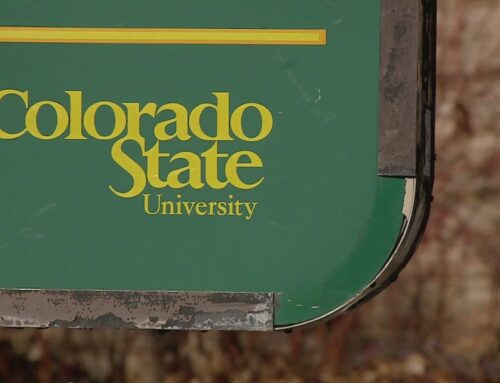New Arkansas law helps people recover money lost in Bitcoin ATM scams, Rogers police say
October 3, 2025
A new law allows for people who have been the victim of a scam involving the use of virtual currency kiosks, often referred to as Bitcoin ATMs, to receive a full refund of their money, and one law enforcement agency reports it’s already putting the law to use.
Rogers police sent out a news release Thursday about Act 557 of 2025, which allows people get their money back from the kiosks if people follow the proper procedures.
According to the Federal Trade Commission, Bitcoin ATMs are machines that look like a traditional ATM and are often found at convenience stores, gas stations and other high-traffic areas. But instead of distributing cash, the machines accept cash in exchange for cryptocurrency.
Data from the commission shows from 2020 to 2023, consumers lost more than $110 million in scams involving Bitcoin ATMS. The commission reports the use of the ATMs by scammers, who urge consumers to deposit cash into them to protect their savings, is on the rise.
Don Lisi, Rogers Police Department spokesman, said police investigate cases involving virtual currency scams on a regular basis, and the department is currently handling couple such cases. However, Lisi said he could not discuss the details of those cases.
Act 557 states: “The owner of a virtual currency kiosk or a virtual currency kiosk operator shall allow a new customer, upon the request of the new customer, to cancel and receive a full refund for any fraudulent virtual currency transactions that occurred not later than seventy-two hours after the new customer registered as a customer of the owner of the virtual currency kiosk or the virtual currency kiosk operator if, not later than fourteen days after the last virtual currency transaction that occurred during the seventy-two hour period, the new customer:
“(1) contacts the owner of the virtual currency kiosk or the virtual currency kiosk operator and a government or law enforcement agency to inform the owner of the virtual currency kiosk or the virtual currency kiosk operator and government or law enforcement agency of the fraudulent nature of the virtual currency transaction; and
“(2) files a report with a government or law enforcement agency memorializing the fraudulent nature of the virtual currency transaction.”
The law went into effect Aug. 5, and Rogers police detectives have already begun the process to assist victims of virtual kiosk scams in getting their money refunded, according to Thursday’s release.
Detectives will not be able to assist people with previous cases since the law is not retroactive, according to the release.
Lisi urged people to remain vigilant.
“If someone is calling you, texting you, messaging you online, etc., and trying get you to send them money in any form, please be wary of these folks,” he said. “If you think it is a scam, please hang up or stop communicating with them and contact law enforcement. If someone contacts you claiming to be a law enforcement officer and is asking for some sort of payment, that is a scam. Law enforcement officers will never attempt to collect money from you for any reason.”
ACTIONS ELSEWHERE
Arkansas is not alone in passing laws aimed at cutting down on fraud at virtual currency kiosks.
The Arizona Cryptocurrency Kiosk License Fraud Prevention law went into effect Sept. 26, according to a news release from Arizona Attorney General Kris Mayes.
The law lowers daily transaction minimums, increases warnings on the kiosks, requires transaction receipts and requires Bitcoin ATM operators to issue refunds to victims of fraud, the release states.
“I’m glad we can implement commonsense protections to prevent even more Arizonans from becoming victims of cryptocurrency ATM fraud,” Mayes said. “Last year, Arizonans lost an astounding $177 million in their hard-earned savings to cryptocurrency scammers. This is a good first step, but we need to do even more to protect Arizona seniors from these persistent criminals.”
Illinois Gov. J.B. Pritzker signed the Digital Asset Kiosk Act into law Aug. 18, according to a news release from the Illinois Department of Financial and Professional Regulation.
The act requires virtual currency kiosk operators to register with the Department of Financial and Professional Regulation, provide reports detailing all kiosk locations, and provide full refunds to new customers who are victims of scams at kiosks. Transaction fees are also capped at 18% at the kiosks, and daily transaction amounts are capped at $2,500 for new customers.
Iowa’s new cryptocurrency law went into effect July 1, according to information from the Iowa Attorney General’s Office. It requires operators of virtual currency kiosks to issue refunds to Iowans for fraudulent transactions processed through the machines as long as certain steps are followed within 90 days of the transaction. It also implements a $1,000 daily transaction limit and a $10,000 limit for the 30 days following a person’s first transaction with the cryptocurrency ATM company, prohibits operators from charging fees more than 15% of the value of the cryptocurrency being bought and requires the ATMs to display enhanced scam warnings.
CASE IN STATE COURT
A lawsuit was filed in April against the Benton County Sheriff’s Office after deputies seized $14,120 from a virtual currency kiosk after a person claimed to have been scammed.
Bitcoin Depot, the company operating the kiosk, is suing the Benton County Sheriff’s Office for the thousands of dollars, which was seized from the machine as a result of a search warrant.
The lawsuit claims a user created a Bitcoin Depot account March 10 at Circle K at 3209 S.W. Second St. in Bentonville. The user purchased Bitcoin for $14,120 in two separate transactions, and the Bitcoin was sent to a digital wallet, according to court documents. Cryptocurrency is stored in a digital wallet, which can be online, on a computer or on an external hard drive, according to the Federal Trade Commission.
The lawsuit claims after the kiosk user completed the transactions, he contacted the company’s customer service to report he was a scam victim. He reported he’d received a phone call from someone who claimed to be a deputy from the Benton County Sheriff’s Office and there was a warrant out for his arrest for failure to appear for jury duty, according to the complaint.
The individual pretending to be a deputy first instructed the user to pay the money by PayPal, but then instructed the man to use an ATM and provided a QR code, according to the complaint. The code directed the money to a digital wallet not owned by the man, but presumably owned by the scammer, according to the complaint.
The customer service representative informed the man both transactions had been completed and all transactions are final and irreversible, according to the complaint. The representative recommended the man contact local law enforcement regarding the scam, according to court documents.
The man reported to the Sheriff’s Office he had been scammed, and the Sheriff’s Office later obtained a warrant and seized $14,120 from the ATM.
The lawsuit claims the seized money is the property of Bitcoin Depot, and the money is not evidence of any crime, including theft of property and criminal impersonation.
The company contacted the Sheriff’s Office and Benton County Prosecuting Attorney’s Office requesting the money be returned, but the money has not been returned, according to the complaint.
The lawsuit has not been resolved.
The seven Benton County circuit judges recused from the case, and it has been assigned to Jim Spears, a retired circuit judge.
The Arkansas Attorney General’s Office issued a news release in April that cryptocurrency kiosk scams are on the rise in Arkansas.
Arkansans who wish to report concerns about potential cryptocurrency kiosk scams should contact the Office of the Attorney General by calling 1-800-482-8982, emailing [email protected] or by visiting arkansasag.gov/file-a-complaint.
——————————————–
How do these scams work, and what are the dangers?
Scammers will call or text consumers claiming to be a legitimate institution, such as a bank or a government institution.
Often, they create a sense of urgency by stating an account has been compromised or a person owes the government back taxes or missed court and owe several thousand dollars. Scammers may even send someone documents that look official or “spoof” a legitimate organization, meaning the caller ID will show an organization’s name.
Once the scammer has a person worried, they direct them to deposit money into a cryptocurrency kiosk.
Payments through kiosks are quick and immediate. Transactions cannot be reversed and are often untraceable.
Five things to remember:
No legitimate business will demand advance payment through a Bitcoin ATM.
No government organization will contact someone via text message to pay a bill or ask for payments through a Bitcoin ATM.
People should not pay anyone who contacts them with cryptocurrency, wire transfers or gift cards. If contacted about cryptocurrency, people should hang up and try calling the institution back (such as the sheriff’s office, utility company or bank) through a known number.
People should never provide personal information to anyone they do not know. Instead, they should contact a trusted relative or friend and ask for advice.
For those who have been the victim of a cryptocurrency scam, they should contact the Office of the Attorney General and file a complaint.
Source: Arkansas Attorney General’s Office
Search
RECENT PRESS RELEASES
Related Post



